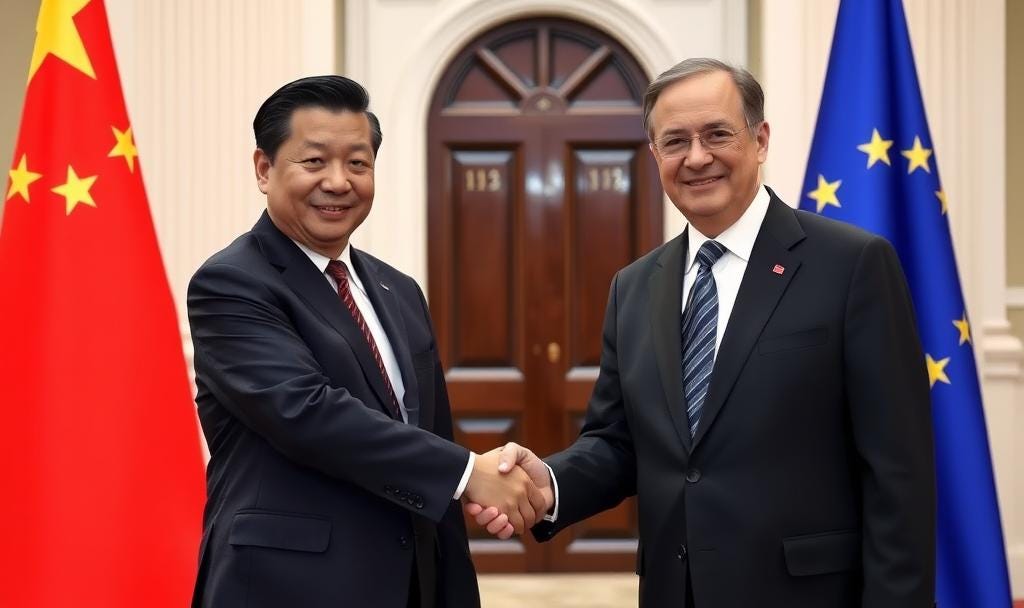Today’s Briefing: Whiskey, Tariffs, and the End of American Influence
A cultural analysis of shifting global alliances built on cooperation, not coercion.
China’s 34% Tariffs, Canada’s Countermeasures, and Europe’s Whiskey Strike.
Not more trade chaos, but rather allies and adversaries drawing the line and uniting against America.
This is a cultural fight between two worldviews dictated by top-down dominance and leadership through negotiation and mutual benefit.
The Cultural Connection
Cultures differ in how nations deal with other nations:
Top-down dominance believes strength means commanding others and setting the rules unilaterally.
Negotiated authority believes that strength comes from cooperation, mutual respect, and strategic alliances.
One system enforces decisions. The other earns influence.
The News
China Strikes Back
With retaliation, rare earths, and an earning, China imposed a 34% tariff on US goods—the most aggressive escalation yet in the trade war. It also restricted rare earth exports and added 11 US companies to its “unreliable entities” list.
This isn’t just retaliation. Beijing, historically top-down, is rejecting Washington’s top-down demands. China is promoting negotiated authority, historically the US system. It’s saying: We’re not followers in your economic order.
Canada’s Carney Pushes Back
A New Trade Alliance Emerges Canadian Prime Minister Mark Carney announced targeted counter-tariffs on US autos and outlined plans to realign trade partnerships across Europe, Mexico, and Australia. His message? The US is no longer a reliable economic partner.
Carney’s move isn’t just economic—it’s symbolic. Canada is stepping away from deference and toward leadership—negotiated authority in action and bypassing the US.
Europe Hits Where It Hurts
Whiskey gets the axe. The EU reinstated a 50% tariff on American whiskey—more than symbolic. Whiskey is one of the US's most iconic cultural exports. This is a clear message from Europe: respect is mutual or disappears.
Rather than escalate blindly, EU leaders coordinated a measured strike. It’s not rage—it’s strategy. This indicates that the world’s default stance toward the US is shifting from cooperation to pushback.
Why This Matters
For nearly a century, the US-dominated global trade through strength and structure. But today, that approach is over. Allies refuse to be bullied and dominated, and they are abandoning America. Adversaries are working with America's former allies. A new world order is emerging, with the US as a minor player.
This is the cost of top-down dominance: when decisions are made without input, others find new allies. When strength becomes a demand, negotiation becomes defiance.
Negotiated authority works. When nations collaborate, economies grow, and trust deepens. Even rivals find stability in rules they helped shape.
Top-down dominance fails. When power is used to coerce, it breeds backlash. Tariffs result in isolation. Alliances dissolve. And markets spiral down.
The US still has power. But if it keeps using that power to command rather than cooperate, it won’t just lose deals; it will lose power, influence, and influence and be sidelined.
The question isn’t whether America leads. It’s how.
Today on Tik Tok
Australia’s pushback against Trump






